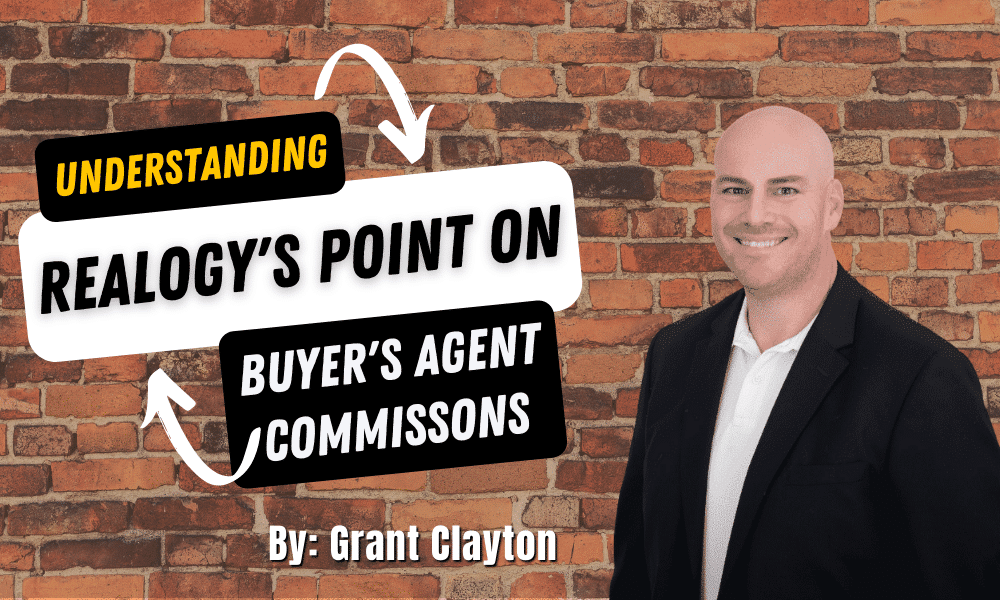For those who might have missed it, Realogy, one of the biggest real estate companies in the world, just publicly announced that it supports ending the requirement that a buyer’s broker be offered compensation by the MLS.
How big is Realogy
Realogy supported roughly 1.4 million home transactions in 2020 and has just under 200,000 agents in 117 countries.
Let’s assume that these agents are doing roughly 50% listings and 50% buyers. This would mean that Realogy is publicly stating that they are OK with the possibility of 700,000 buyer transactions hypothetically not guaranteeing them any commission by the MLS.
It cannot be overstated how massive of a statement that is.
Based on a 2.5% buyer commission and an average sales price of 380,000 that is over 6 BILLION in GCI.
Why would Realogy propose this change?
In my opinion there are two reasons, one is a brokerage problem and the other is a lead problem.
The brokerage problem
Realogy is home to some of the most prestigious and longest tenured real estate franchises around. Realogy is home to Century 21, Better Homes and Gardens, Coldwell Banker, ERA, Corcoran, and Sotheby’s International Realty.
These are the blue blood companies in real estate that have done well for decades. Now they are now facing stiff challenges.

New-age Brokerages
Technology has made virtual brokerages superior in many ways to their brick and mortar counterparts.
These new companies have remarkably less overhead, which allows them to offer amazing splits to recruit agents.
Some of these new companies offer stock with closings, multi level marketing style recruiting abilities, revenue sharing, and tons of other new value adds to lure in the agent.
Some of these companies simply offer unbelievable commission splits that have agents bringing home 95% or more of each check.
Much like traditional retail is scrambling to keep up with Amazon, these companies are scrambling to keep pace with the value that many of these companies offer.
Other upstart companies, like 1 Percent Lists, are using these savings to drive down listing fees to gather up more listing market share which further exacerbates the problem.
The traditional brokerages balanced their budgets on high commissions from clients and lower commission splits for their agents.
These new-age, disruptive brokerages are taking their agents with better splits and taking their clients with lower fees.
How can they survive
It’s a tough spot to be in. The best way to compete is to cut costs, but you are tied to long term brick and mortar office commitments and the staff that runs them. Neither of these fights seem winnable long term.
Some older agents remain at the older companies. Though the younger, tech-savvy agents feel more at home at the new techie brokerages.
Much like the old guard of big retail, it is incredibly hard to pivot these massive brick and mortar companies into lean, cost efficient companies.
Don’t believe me? Ask any of a number of big retail companies that have gone by the wayside.

The lead generation problem
There was a time not long ago when the first thing people did when they decided to move was call their agent. Now, the first thing that the public does is go straight to the internet to search for themselves.
Big tech is the first stop for the overwhelming majority of real estate search.
Home search statistics
According to a NAR study called Real Estate in the Digital Age, 97% of home searchers, including 99% of millennials, 98% of Gen X, and 96% of baby boomers begin online.
Even those from the silent generation that lived through World War 2 shop online for homes at a rate of 87%.
Only 18% of home shoppers said one of their first steps was to contact an agent and why would they? Everything you used to need to speak to an agent for you can now view through your browser, tablet, or an app.
Technology has forever changed the real estate industry
In a world driven by modern efficiency, starting the process with speaking to an agent seems like an unnecessary inconvenience to them.
Because of this fact, the new office for the modern real estate agent is Facebook and Instagram. When their clients aren’t shopping for homes on their browser they are noticing them on social media.
The continual creep of technology and pure digital efficiency is slowly gobbling up the old, inefficient ways of doing things. Those leads that used to belong to agents of the old guard brokerages now belong to the internet. The older brokerages and their agents who dominated with print media, open houses, and broker tours are simply not built to compete in this new real estate world.
They don’t seem to be able to win on this front either. Or can they?
What can they do?
Do you die a long slow death of 1,000 cuts or do you do something drastic? Well in the boardroom of Realogy, the choice seems to suggest doing something drastic.
They might not be able to quickly pivot to fight off the lower listing fee brokerages their clients go to or the better split brokerages that agents are opting for. But they can cripple big tech by making their leads worthless.
Big tech in the real estate world has so far only really tried to make money on two fronts.

How big tech makes money
One such front is the purchasing and flipping of homes, which many of them obviously don’t seem to be equipped to do considering the amount of money they are losing.
The other front which is by far the breadwinner for these companies is the selling of buyer leads. These buyer leads are continually getting more expensive for agents to purchase. They continue to do so, however, for two reasons.
- It helps them build their long term sphere of influence.
- The buyer commissions are very profitable for both the agent and big tech that provides those leads.
Potential effects of this proposed change
What if those leads were devalued?
What if those leads were no longer a guaranteed big payday for the agents that purchased them?
I personally would not pay several hundred or much less thousands of dollars for leads that might not have a reward on the other side.
Is the old guard planting its flag in the ground and willing to lose a large chunk of its buyer side revenue to declare all out war on big tech? It seems like that might be the case.
Another possible reason
Of course, it’s possible that Realogy is just trying to offer an olive branch to the Department of Justice given all of the drama that we have seen recently between them and the National Association of Realtors regarding commissions.
The Department of Justice
The DOJ seems intent to dismantle the real estate industry of any NAR policies that it views as unfair or anticompetitive.
The DOJ began by insisting that buyer agent’s commissions are posted publicly. They also no longer want buyer’s agents saying they are “free” and don’t cost the client a penny.
Realogy is listening
Maybe Realogy is just signaling that they are willing to play ball and listen to the government’s concerns. If that is the case though, it seems like there must have been a less drastic signal they could have given.
Founder and CEO of 1 Percent Lists
